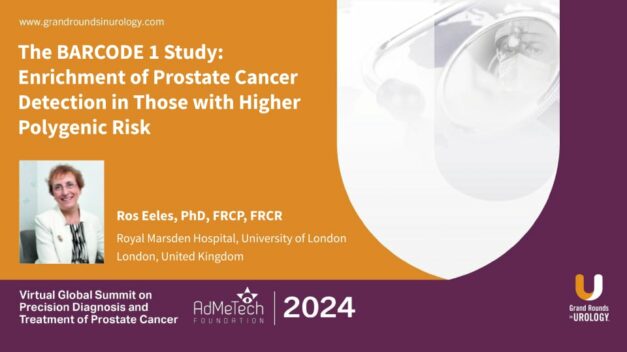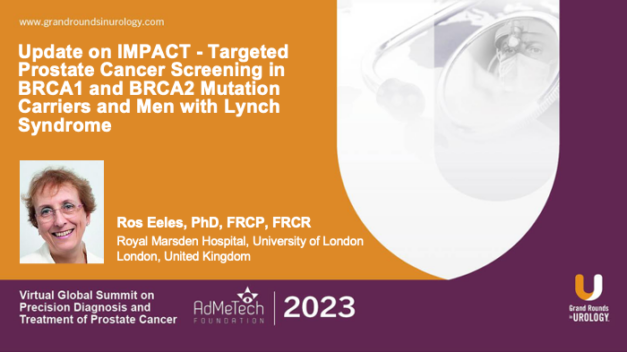The BARCODE 1 Study: Enrichment of Prostate Cancer Detection in Those with Higher Polygenic Risk
Ros Eeles, PhD, FRCP, FRCR, introduces the BARCODE 1 study, which explores the enrichment of prostate cancer detection using polygenic risk scores (PRS) and addresses challenges with traditional screening methods.
In this six-minute presentation, Eeles interprets the study’s results, concluding that PRS offers a robust, one-time genetic test to guide targeted screening, detecting more significant cancers without contributing to overdiagnosis.
Read More

